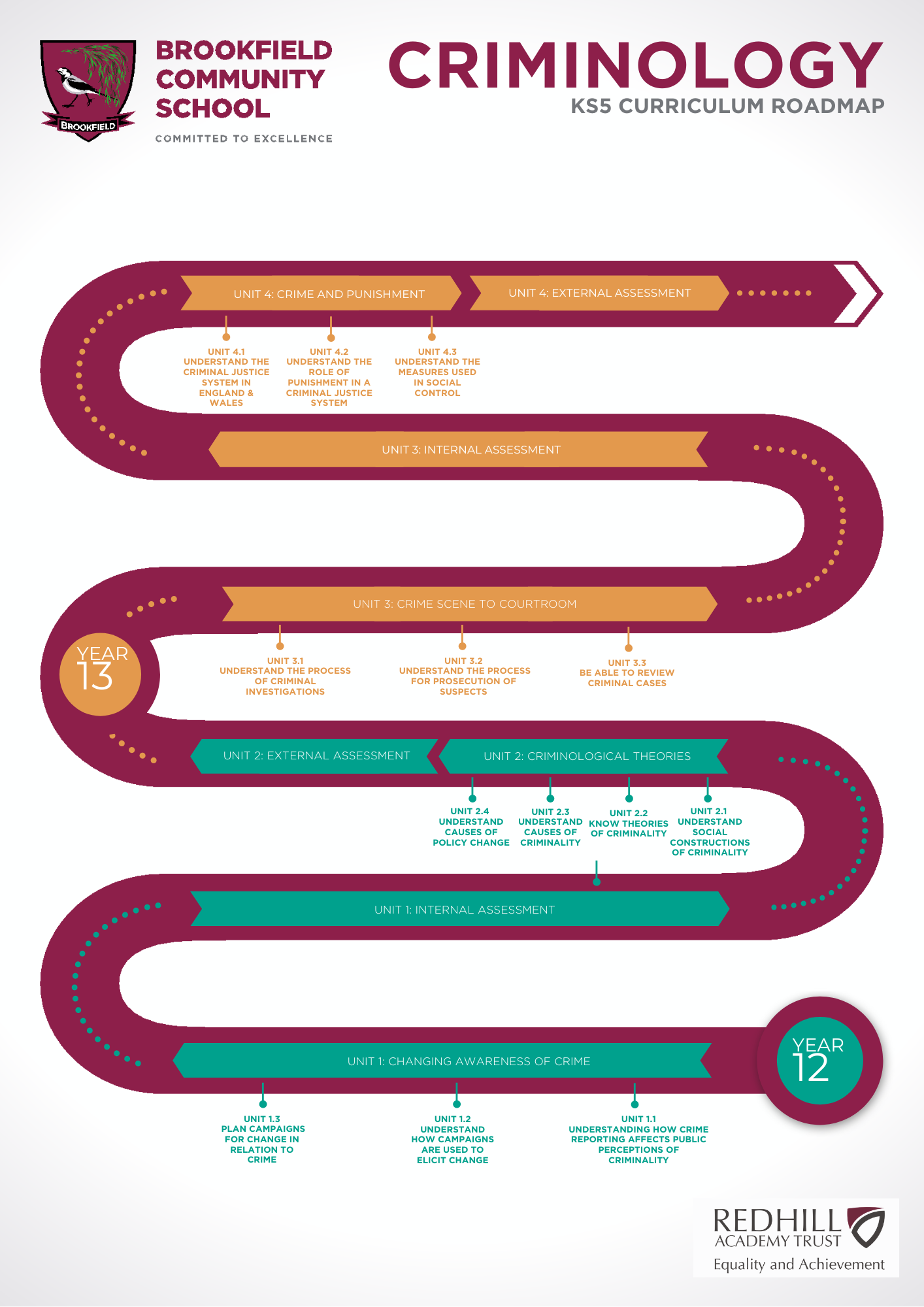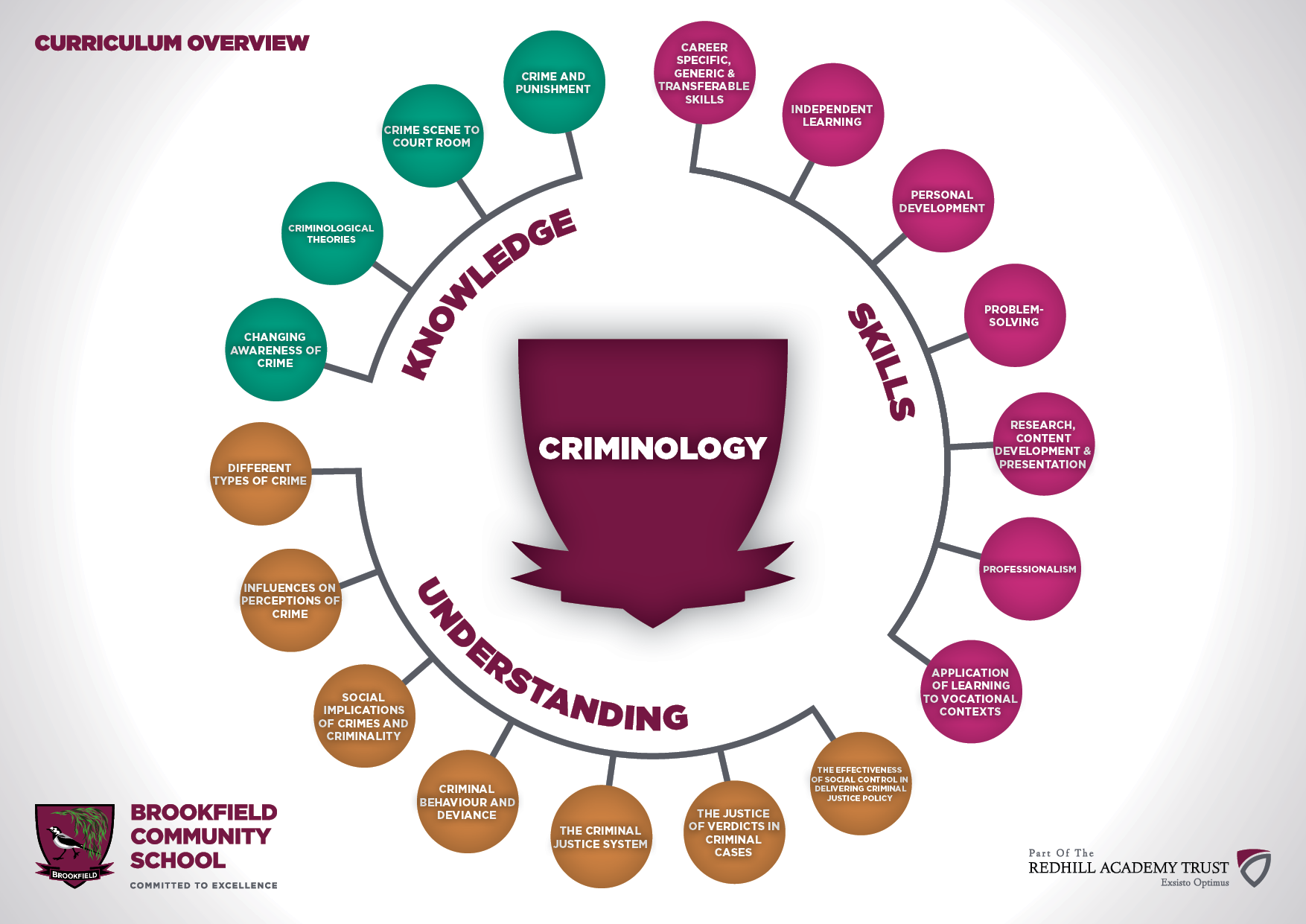Criminology
Click image to view full size.
Introduction to Criminology
Not all types of crime are alike. What different types of crime take place in our society? How do we decide what behaviour is criminal? What is the difference between criminal behaviour and deviance? How do we explain why people commit crime? What happens to those who commit a crime? Why and how do we punish people? What organisations do we have in our society to control criminality?
The WJEC Level 3 Diploma in Criminology has been designed to provide learners with underpinning knowledge, understanding and skills to progress to further study and training. It offers exciting and interesting experiences that focus learning for 16-19 year-old learners and adult learners through applied learning, i.e. through the acquisition of knowledge and understanding in purposeful contexts linked to the criminal justice system.
Key Stage 5
WJEC Level 3 Diploma in Criminology
Exam Board: WJEC
The Course
The course is divided into four units of study:
- Unit 1 – Changing Awareness of Crime
- Learners develop an understanding of different types of crime, influences on perceptions of crime and why some crimes are unreported.Knowing about the wide range of different crimes and the reasons people have for not reporting such crimes provides an understanding of the complexity of behaviours and the social implications of such crimes and criminality.
- Unit 2 – Criminological Theories
- Learners gain an understanding of why people commit crime, drawing on what they have learned in Unit 1.Learners explore the difference between criminal behaviour and deviance and the theories behind why people commit crime.
- Unit 3 – Crime Scene to Courtroom
- Learners gain an understanding of the criminal justice system from the moment a crime has been identified to the verdict.They develop the understanding and skills needed to examine information in order to review the justice of verdicts in criminal cases.
- Unit 4 – Crime and Punishment
- Learners apply their understanding of the awareness of criminality, criminological theories and the process of bringing an accused to court in order to evaluate the effectiveness of social control to deliver criminal justice policy.
How are students assessed?
The WJEC Level 3 Diploma in Criminology is assessed through a combination of two written examinations, set and marked by WJEC, and two centre-marked assignments.
Year 1 Assessments:
- Unit 1 – Changing Awareness of Crime – Internal assessment, 8 hours, 25%
- Unit 2 – Criminological Theories – External assessment, 1.5 hours, 25%.
Year 2 Assessments:
- Unit 3 – Crime Scene to Courtroom – Internal assessment, 8 hours, 25%
- Unit 4 – Crime and Punishment – External assessment, 1.5 hours, 25%

Enrichment
- Regular opportunities to research, analyse and discuss current crimes in the local and national media, and developments in policy and criminal justice.
- Visits to magistrates and crown courts.
- Opportunities to meet criminal justice professionals and discuss their work and careers.
Progression Opportunities
The WJEC Level 3 Diploma in Criminology has elements of psychology, law and sociology that complement studies in humanities. The main purpose of the qualification is to support access to higher education degree courses, such as Criminology, Law, Criminal Justice and Policing.
An understanding of criminology is relevant to many job roles within the criminal justice sector, including police officers, probation and prison officers, and social workers. With their critical thinking, analytical and communication skills, criminology graduates are also attractive to employers outside the criminal justice sector in areas such as social research and politics.


